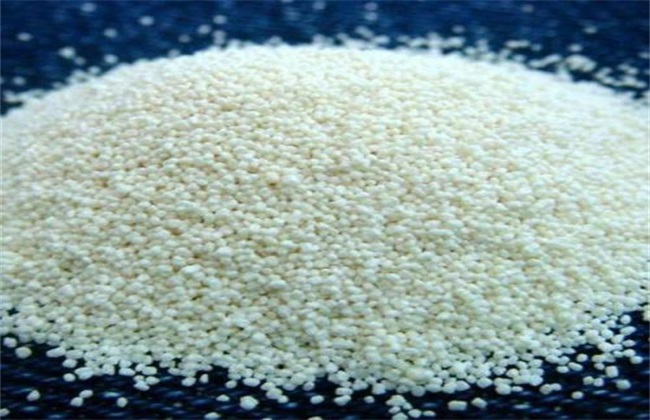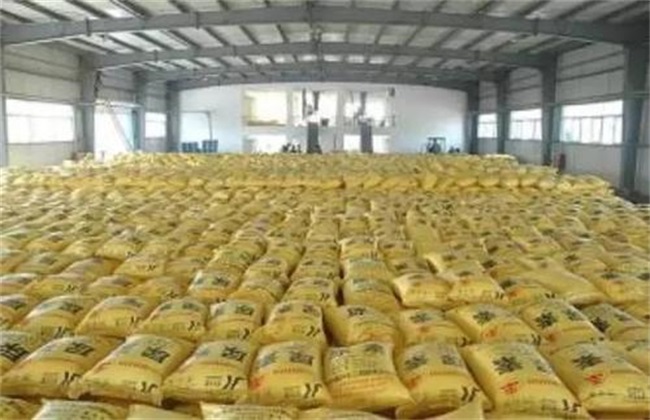How to reduce the harm of chemical fertilizer
Chemical fertilizer is a very common fertilizer in our daily life. Reasonable application of chemical fertilizer can effectively promote the growth of crops, so as to achieve the goal of high yield and high quality. But there are two sides to everything. If the amount of fertilizer is not controlled and fertilized improperly, then chemical fertilizer will cause great harm to crops and the environment. So how can we reduce the harm of chemical fertilizer? Let's take a look at it with the editor.

1. Strengthen the formula fertilization
When we apply fertilizer, the fertilization method must change the previous traditional fertilization method, reduce its randomness and blindness, and give priority to formula fertilization. In the formula fertilization, it is necessary to fully understand a variety of fertilization parameters. For example, the nutrient absorption of yield, the absorption rate of soil nutrients and the utilization rate of chemical fertilizer. These parameters will change with the growth of crops and the change of planting conditions such as weather. Therefore, we should pay attention to increasing fertilization parameters, such as water quality, the content of harmful substances in soil and the pollution degree of chemical fertilizer, and constantly optimize the formula of fertilization.
2. Increase the proportion of organic fertilizer.
When we apply chemical fertilizer, we must not apply chemical fertilizer alone. We must pay attention to the combination of organic fertilizer and organic fertilizer, and in the formula fertilization, we also need to appropriately increase the proportion of organic fertilizer. Because organic fertilizer has a lot of nutrients, the duration of fertilizer effect is also very long, and it has the advantage of non-pollution. Appropriate amount of high-efficiency organic fertilizer can increase the content of organic matter in soil and enhance the ability of soil to retain water and fertilizer. At the same time, it can also improve the structure and physical and chemical properties of soil, so as to reduce the harm of chemical fertilizer.
3. Increase the utilization of biological bacterial fertilizer and micro-fertilizer.
Micro-fertilizer is also very important in crop growth, and it can ensure the balance of nutrients in crops. And biological fertilizer because it contains a large number of beneficial microorganisms, this microorganism can secrete a large number of physiologically active substances. It has the function of fixing nitrogen and dissolving phosphorus and potassium, which can not only improve the utilization rate of organic fertilizer and chemical fertilizer, but also improve soil and supplement soil nutrients. It is very beneficial to the growth, quality and yield of crops. And biological bacterial fertilizer can also eliminate harmful substances and bacteria in the soil and reduce the residues of pesticides and chemical fertilizers in the soil.
4. Coordinate the relationship between large amounts and trace elements.
Although now a lot of people are using formula fertilization. However, in the formula fertilization, there are still people who only pay attention to the proportion of a large number of elements such as nitrogen, phosphorus and potassium. The supplement of trace elements is not taken into account at all. No matter what kind of crop it is, trace elements are very important when it grows. Increasing the supplement of trace elements can ensure the balance of nutrition supply in crops, speed up the transformation of nutrients, and reduce the accumulation of harmful substances. At the same time, it is also a key measure to improve the disease resistance of crops, and the harm caused by chemical fertilizer can also be reduced.
The above is a brief introduction to how to reduce the harm of chemical fertilizer. That's all for today's introduction. This article is for reference only. Thank you for your reading and support.
Related
- Fuxing push coffee new agricultural production and marketing class: lack of small-scale processing plants
- Jujube rice field leisure farm deep ploughing Yilan for five years to create a space for organic food and play
- Nongyu Farm-A trial of organic papaya for brave women with advanced technology
- Four points for attention in the prevention and control of diseases and insect pests of edible fungi
- How to add nutrient solution to Edible Fungi
- Is there any good way to control edible fungus mites?
- Open Inoculation Technology of Edible Fungi
- Is there any clever way to use fertilizer for edible fungus in winter?
- What agents are used to kill the pathogens of edible fungi in the mushroom shed?
- Rapid drying of Edible Fungi



